
Bruce Bower has written about the behavioral sciences since 1984. He often writes about psychology, anthropology, archaeology and mental health issues. Bruce has a master's degree in psychology from Pepperdine University and a master's degree in journalism from the University of Missouri. Following an internship at Science News in 1981, he worked as a reporter at Psychiatric News, a publication of the American Psychiatric Association, until joining Science News as a staff writer. In 1996, the American Psychological Association appointed Bruce a Science Writer Fellow, with a grant to visit psychological scientists of his own choosing. Early stints as an aide in a day school for children and teenagers with severe psychological problems and as a counselor in a drug diversion center provided Bruce with a surprisingly good background for a career in science journalism.

Trustworthy journalism comes at a price.
Scientists and journalists share a core belief in questioning, observing and verifying to reach the truth. Science News reports on crucial research and discovery across science disciplines. We need your financial support to make it happen – every contribution makes a difference.
All Stories by Bruce Bower
-
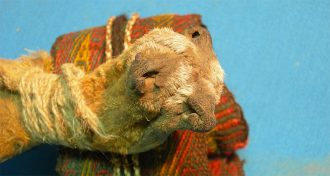 Archaeology
ArchaeologyAn ancient pouch reveals the hallucinogen stash of an Andes shaman
South American shamans in the Andes Mountains carried mind-altering ingredients 1,000 years ago, a study finds.
-
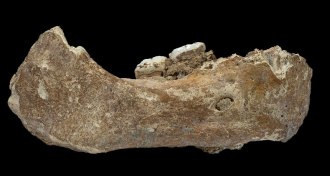 Anthropology
AnthropologyA jawbone shows Denisovans lived on the Tibetan Plateau long before humans
A Denisovan jaw is the earliest evidence of hominids on the Tibetan Plateau, and the first fossil outside of Siberia from the mysterious human lineage.
-
 Health & Medicine
Health & MedicineWhy war’s emotional wounds run deeper for some kids and not others
Researchers examine why war’s emotional wounds run deep in some youngsters, not others.
-
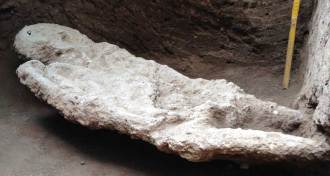 Archaeology
ArchaeologyExcavations show hunter-gatherers lived in the Amazon more than 10,000 years ago
Early foragers may have laid the foundation for farming’s ascent in South America’s tropical forests.
-
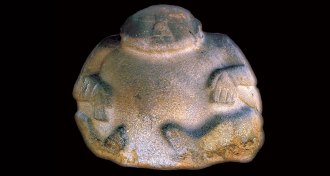 Archaeology
ArchaeologyAncient sculptors made magnetic figures from rocks struck by lightning
Carved ‘potbelly’ stone sculptures suggest people in what’s now Guatemala knew about magnetism more than 2,000 years ago.
-
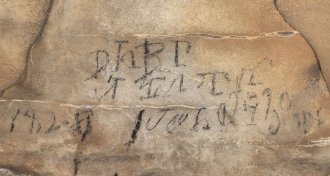 Archaeology
ArchaeologyNewly translated Cherokee cave writings reveal sacred messages
Cherokee inscriptions highlight the tribe’s rituals nearly 200 years ago in what’s now a tourist cave in Alabama.
-
 Archaeology
Archaeology‘Cities’ reveals common ground between ancient and modern urban life
In the book ‘Cities,’ archaeologist Monica Smith sees the positives in past and present metropolises.
-
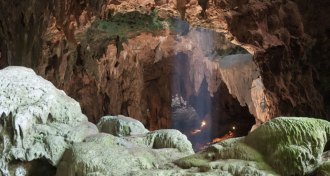 Anthropology
AnthropologyA new hominid species has been found in a Philippine cave, fossils suggest
Cave fossils found in the Philippines come from a newly discovered member of the human lineage, researchers say.
-
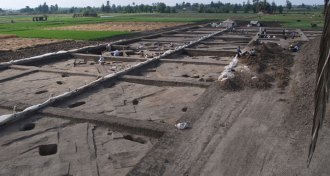 Anthropology
AnthropologyForeigners may have conquered ancient Egypt without invading it
Dental evidence suggests female Hyksos immigrants married into power.
-
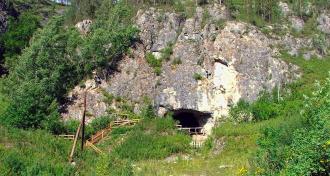 Anthropology
AnthropologyThe first known fossil of a Denisovan skull has been found in a Siberian cave
A new fossil and evidence that the hominids interbred with humans as recently as 15,000 years ago only add to Denisovans’ mystery.
-
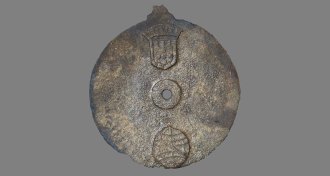 Archaeology
ArchaeologyThe oldest known astrolabe was used on one of Vasco da Gama’s ships
A navigational device for taking altitudes at sea was found in a Portuguese shipwreck in the Arabian Sea and dates back to 1496.
-
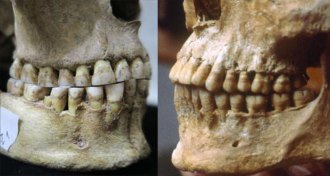 Humans
HumansThe rise of farming altered our bite and changed how people talk
Eating soft, processed foods refashioned adults' jaws, which added “f” and “v” sounds to speech and changed languages worldwide, a study finds.